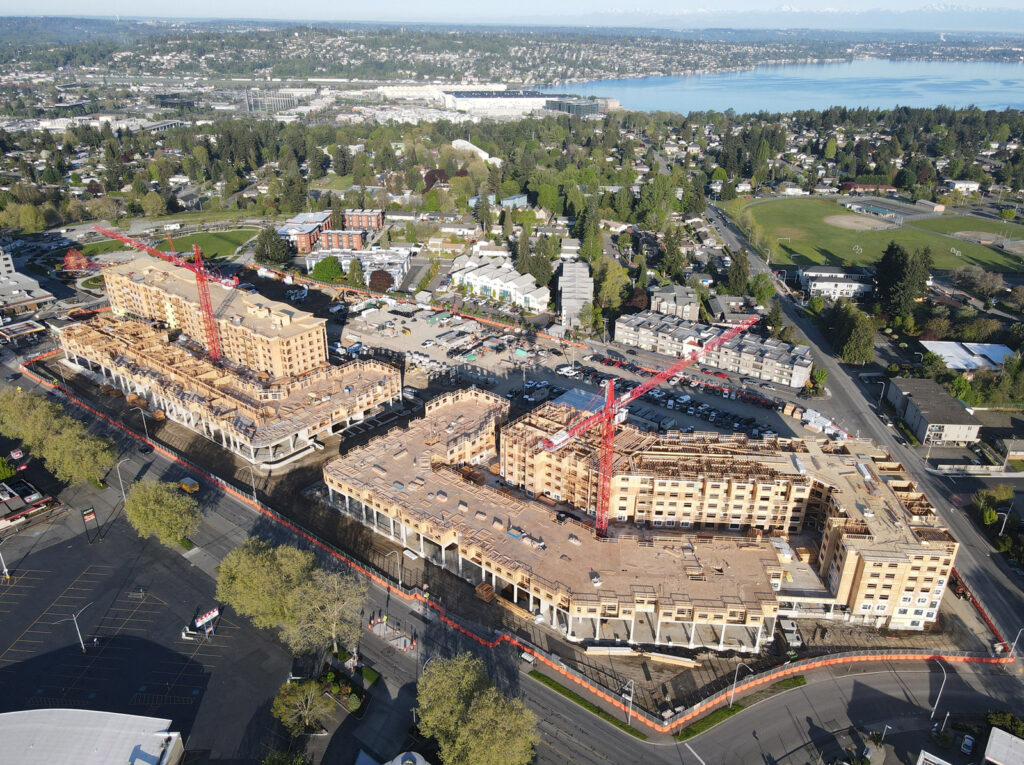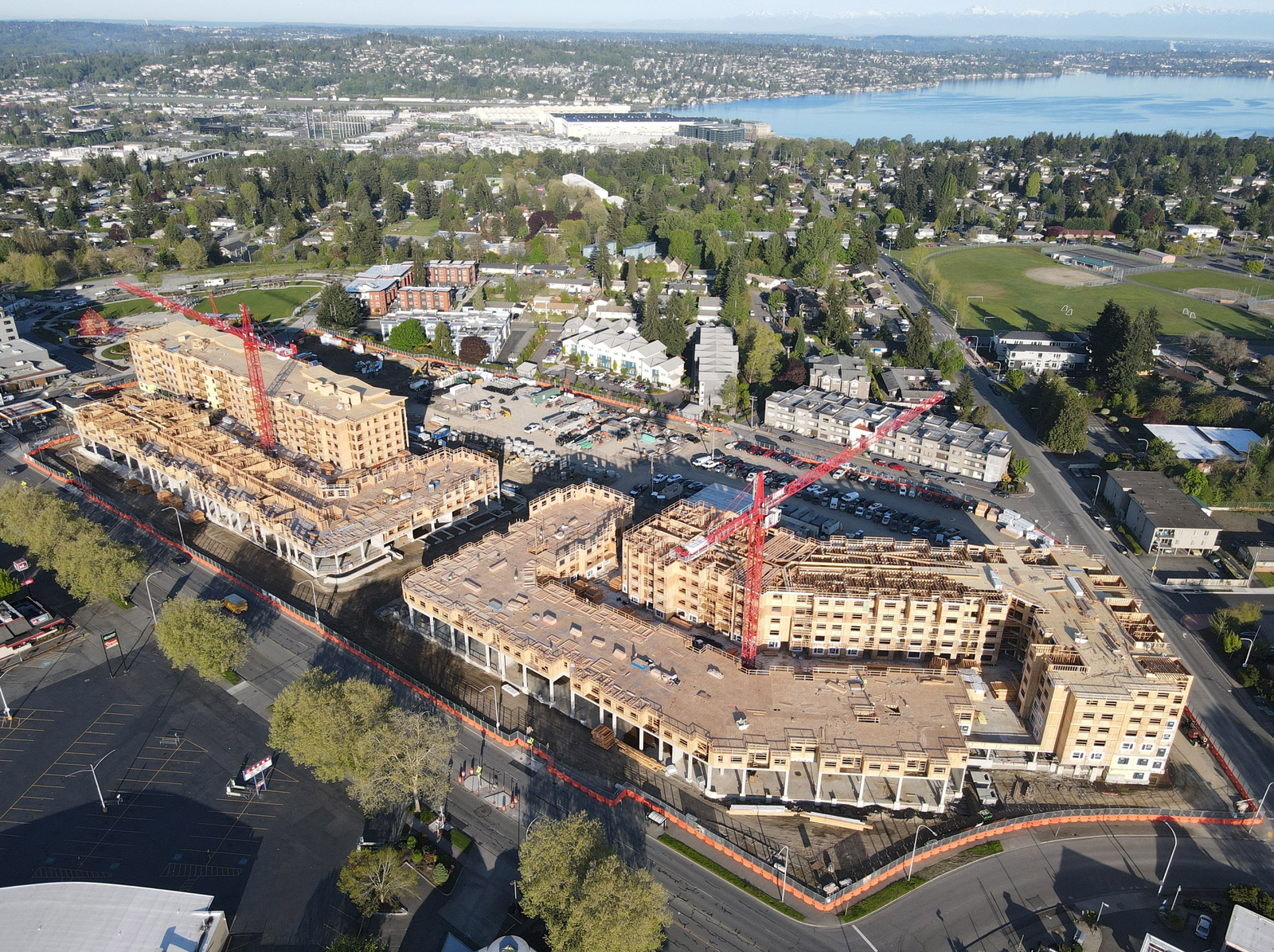By Kris Hermanns
I think something we can all agree on is that Greater Seattle needs more housing. Housing costs have skyrocketed in the Puget Sound region, and we increasingly see working people with modest incomes — schoolteachers, grocery clerks, caregivers — getting priced out.
The supply of affordable housing is tight, and this is a challenge that goes beyond Seattle and King County. According to a 2023 Washington Department of Commerce report, our state needs to add 1.1 million homes over the next 20 years to keep pace with population growth. More than half of those homes must be affordable to folks with modest incomes.
We also know that communities of color are hit hardest when there’s not enough affordable housing. In 2019, the Household Travel Survey revealed that 23.5% of Black, Latino, Native American, Pacific Islander and multiracial people who moved out of the Seattle area did so because of rising rents and housing costs—compared to 11.3% of white people who moved.
In early 2020, Seattle Foundation announced the launch of a new impact investing fund called the Evergreen Impact Housing Fund (EIHF) to boost our region’s supply of affordable housing. I’m proud to report that EIHF has invested in a robust portfolio of projects. By 2028, EIHF aims to help more than 8,500 people in modest-income households move into affordable apartments.
Credit Unions Come Together as Early Investors
Copper Way in Spanaway is the newest EIHF project; it broke ground just this week. With 256 apartments, it’s the first project EIHF has financed in Pierce County and the second supported by a group of local credit unions including BECU, Sound Credit Union, Verity Credit Union, and Washington State Employees Credit Union.
The credit unions have been outstanding partners and these developments would not be possible without their trusted community leadership. In 2021, five credit unions—the Copper Way investors plus Salal Credit Union—supported EIHF’s first project, Solera. Located in Renton, Solera consists of 550 multifamily units, half of which are affordable housing. Many of those apartments are set aside for people with disabilities.

“We are pleased to expand our partnership with Seattle Foundation through EIHF. Joining together to support affordable housing projects like Copper Way embodies the people-helping-people spirit of credit unions,” say the credit unions financing the project. “Our work is not just about taking care of our members; it’s also about taking care of our communities.”
Microsoft Drives Investments on the Eastside and Beyond
Microsoft has been another key EIHF partner, committing up to $75 million to support construction of affordable housing, primarily in the Eastside communities outside of Seattle. This includes the Watershed development in Renton that will offer 145 affordable housing units including many two- and three-bedroom units for families. Watershed is scheduled to open in 2024.
“Our region desperately needs a broad network of public, private, and philanthropic organizations that come together around shared solutions. While much remains to be done, initiatives like the Evergreen Impact Housing Fund are helping hundreds of people access affordable housing,” said Jane Broom, Senior Director of Microsoft Philanthropies.
The Impact of Evergreen Impact Housing Fund
EIHF’s most important impact will come when residents move into beautiful, new, affordable apartments. That vision will become a reality this fall when hundreds of people move into the Aries development in Seattle’s Bitter Lake neighborhood. Developed by the nonprofit Bellwether Housing, Aries will feature two- and three-bedroom apartments for families.
Seattle Foundation has brought together investment partners — as well as developers, government funders, and community leaders — to boost Washington’s supply of affordable housing. These diverse parties coming together to explore novel solutions to confounding problems has been critical to making EIHF work.
This patient, private capital stretches scarce public funding further so more housing can be built efficiently. Alignment with proven financing mechanisms streamlines our process, decreases risk, and achieves maximum impact.
The need for affordable housing in the Puget Sound area and across the state is profound. It’s a systemic issue that no single group, institution, or public entity can solve on its own.
Something else I think we can all agree on is that housing is more than just shelter. Housing is critical not only for people to have financial and family stability, but for our community to grow and be the vibrant place where all people experience joy.
Read more about the Copper Way groundbreaking and learn more about how EIHF works, our impact, and how to get involved.

